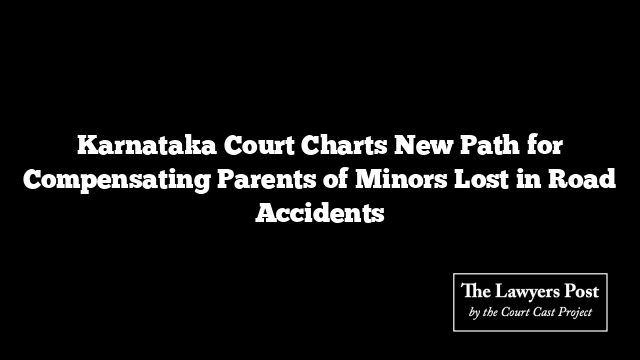In a significant ruling, the Karnataka High Court has set new guidelines for determining compensation for parents whose minor children die in road accidents. The court emphasized that financial dependency at the time of death should not be the sole consideration, pointing to “future dependency” as a key factor.
Justice NS Sanjay Gowda, in a recent judgment, underscored that parents may not immediately depend on their child for financial support, but that could change in their later years. As such, compensation must reflect the loss of this future potential support.
To address this, the court introduced a balanced method for calculating compensation—averaging two established approaches. The “multiplier method,” which accounts for notional income and inflation while subtracting personal expenses, is blended with the “lump sum method” used in railway accident cases. By combining these, the court aimed to provide a more equitable solution.
In a forward-thinking move, the court also directed insurance companies to offer a minimum coverage of ₹10 lakh for parents in such cases, with the option to purchase additional coverage if desired.
The ruling came in response to appeals from parents challenging the compensation amounts previously determined by the Motor Accident Claims Tribunal (MACT). In these cases, the tribunal had assumed that since the victims were minors, their deaths didn’t result in financial loss. The High Court refuted this, arguing that parents not only face immediate costs—such as medical expenses—but also suffer future financial losses from the absence of a potential caregiver.
Highlighting the emotional and financial impacts of such tragedies, the court referenced prior Supreme Court rulings and the Maintenance and Welfare of Parents and Senior Citizens Act, reinforcing the duty of children to support their parents.
The judgment marks a crucial step in recognizing the broader implications of losing a minor child in road accidents and aims to bring fair compensation practices into sharper focus.





